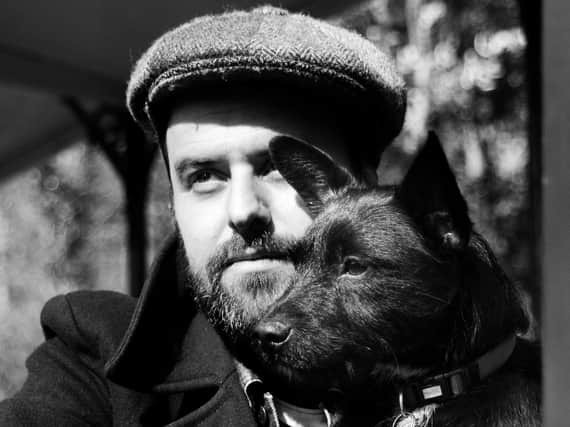Ben Myers on the relationship between literature and nature


During our conversation Ben Myers self-deprecatingly describes himself as “a Jack of all trades and master of none”. Nothing could be further from the truth.
In the past decade the Calder Valley-based author has written a series of outstanding, critically acclaimed novels – all set in the North of England – as well as poetry collections and incisive journalism.
Advertisement
Hide AdAdvertisement
Hide AdHis most recent novel The Gallows Pole, published by Bluemoose Books last year, is currently shortlisted for the prestigious Walter Scott Prize for historical fiction (the winner is announced next month) and it has already received the Roger Deakin Award. Previous novels have been similarly lauded, deservedly so.
His latest book Under the Rock – The Poetry of a Place, a work of non-fiction out this week, is a hugely impressive, engaging exploration of landscape and literature, taking its title from Scout Rock, a steep crag carved from the valley side above Mytholmroyd.
The geological feature played a significant role in the early life of Calderdale’s most famous son, the poet Ted Hughes.
It was the subject of his 1963 essay The Rock in which he described growing up across the valley from ‘my spiritual midwife... both the curtain and the backdrop to existence.’
Advertisement
Hide AdAdvertisement
Hide AdMyers, who has lived in Calderdale since 2008, says that Under the Rock was partly inspired by reading Hughes’ words shortly after moving up to West Yorkshire from London with his wife, the poet and novelist Adelle Stripe.
In the years since, he has been exploring the area, usually in the company of the couple’s dog Heathcliff (shortened to Cliff).
“It is a magical, almost semi-mythical place and there is a real sense of history to it,” he says. “The book is a personal response to that and, in a way, it has taken until now for me to write about it because of Ted Hughes – he casts a big shadow and I wanted to respond in my own way.”
Another inspiration for writing the book was his experience of the 2015 floods which severely affected the towns and villages of Calderdale. It not only made him realise how important a sense of community is, but it was also a stark example of “the fact that nature has power over humans. We think we can control it but events like that are a reminder that we haven’t tamed the planet.”
Advertisement
Hide AdAdvertisement
Hide AdFor Myers it is that edginess and unpredictability which is part of what makes nature so fascinating and his own connection to it has been strengthened by his move North.
“Living in London you find your links with nature but it’s not the same as being up a moor and not seeing another human being.
"We have, I think, become increasingly detached from our immediate surroundings and the further removed we are from the natural world, the more it is at risk because we don’t understand it.”
For his own part, he intends to continue communing with the rugged landscape near his home.
“I’m not some world explorer, just someone who likes being outside,” he says. “It’s about finding stillness in the chaos of 21st century living.”